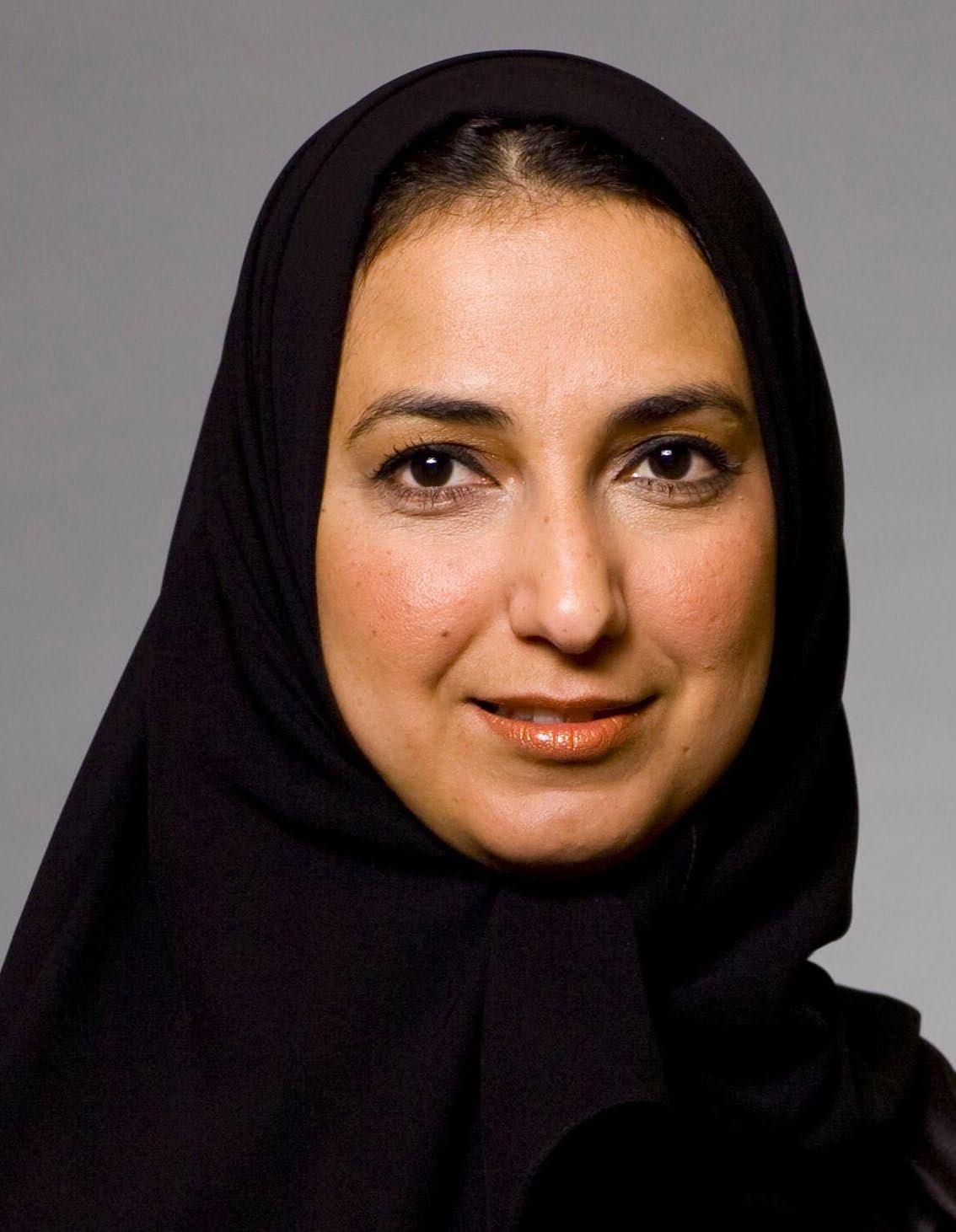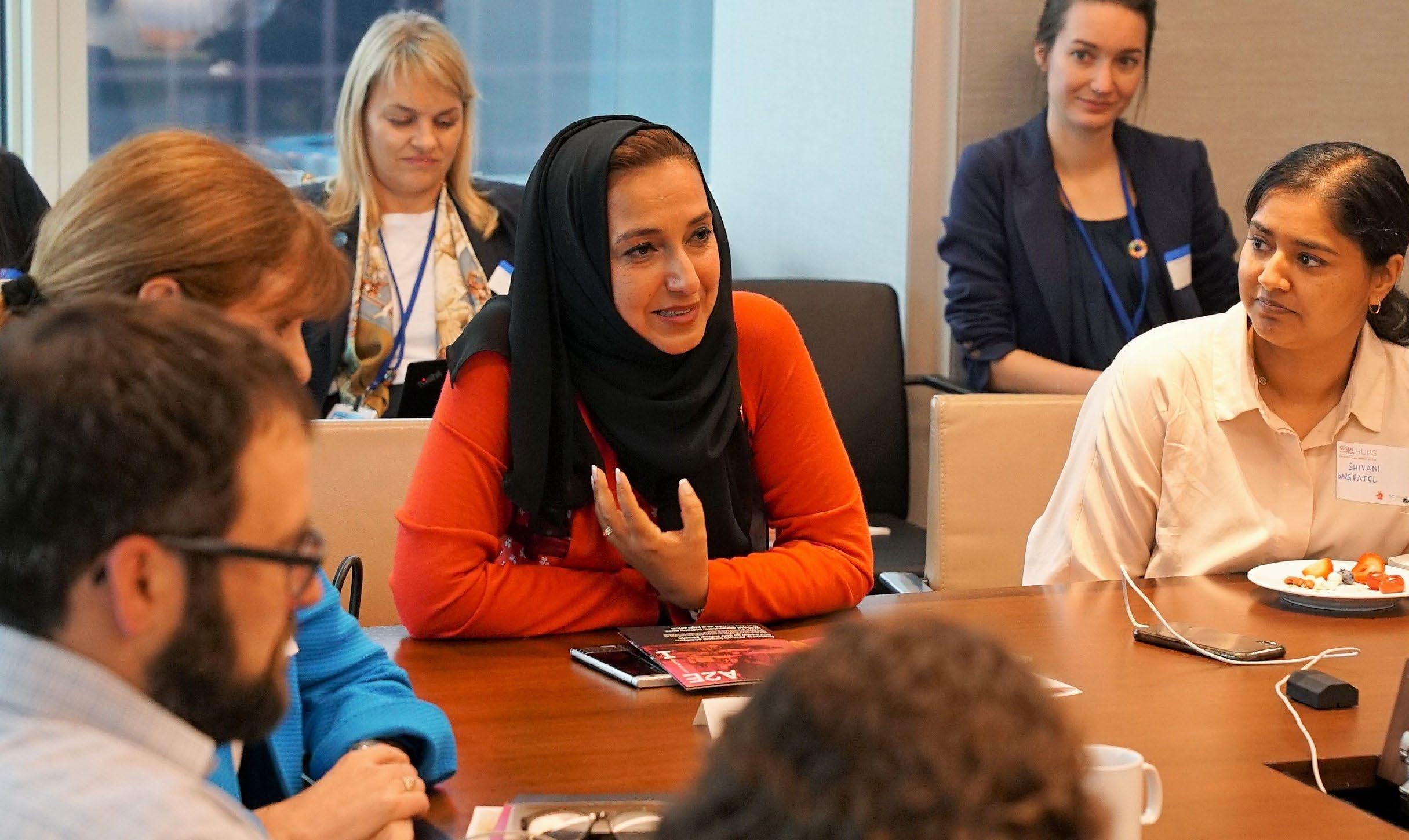
5 minute read
HE Dr Nawal Al-Hosany, UAE's Permanent Representative to IRENA
HE DR NAWAL AL-HOSANY
Permanent Representative of the UAE to IRENA
Advertisement
What does women’s empowerment mean to you?
Women’s empowerment is all about women having the freedom to choose their actions and words without needing to look over their shoulder to find out whether they have been politically correct or socially compliant. In the dynamic 21st century landscape, women’s empowerment is not merely a right, it is equally a responsibility – enabling women to be the best version of themselves and to contribute proactively to support their family and their nation. As women in the UAE, we are blessed to live in a country that is well aware of the capabilities of its women and makes every effort to hone and leverage those strengths in building a future-focussed economy. The country established the UAE Gender Balance Council in 2015, and currently ranks among the world’s leading nations with a 50% representation of women in the Federal National Council. Women also make up one-third of the UAE Cabinet.

In late February, the UAE topped the Middle East and North Africa regional rankings in the World Bank’s 2021 ‘Women, Business and the Law’ (WBL) report. The country’s ratings in the World Bank report saw a significant leap by virtue of ground-breaking legislative reforms implemented over the past few years. Clearly, the significant strides made by the UAE can be attributed to the more than 20 new reforms implemented recently. In letter and spirit today, the voice of UAE women is clearly articulated as they take on their rightful leadership roles across the public and private sector. Of course, we still have miles to go when it comes to making sure empowerment is in synch in theory and practice, but a progress report of the first 50 years of its formation indicates that the UAE is off to a flying start compared to its counterparts in the region.
Gender parity is well intertwined into the social fabric of the UAE. Emirati women’s lofty ambitions today transcend space! From a total of 4,300 applicants for the UAE Astronaut Programme last year, 1,400 were Emirati women.
How would you say tackling women’s empowerment changes from region to region? How is it the same?
The UAE has recently been ranked as the most gender balanced country in the Middle East region, at number 18 globally in the United Nations Development Programme 2020 Gender Balance Index. The 2021 edition of the WBL report I referred to earlier indicates that at least in 10 countries, women are now on an equal legal standing with men across all areas measured – Belgium, Canada, Denmark, France, Iceland, Ireland, Latvia, Luxembourg, Portugal, and Sweden. This year, Ireland joined the group by reforming parental leave and Portugal equalised rules for remarriage. There are, however, clear differences among countries, as a result of the political will and vision necessary to drive the reforms needed in securing equal pay for equal work, representation in parliament, and changing mindsets at the grassroots level. To give you an example – a statistic from UN Women noted in 2017 that global unemployment rates for men and women stood at 5.5% and 6.2% respectively. This was projected to remain relatively unchanged going into 2018 and through 2021. Some of the key steps governments around the world can take to accelerate women’s empowerment is increasing awareness among women and girls, stopping child marriage and sexual harassment, making education gender sensitive and inclusive, raising aspirations among girls and their parents, and valuing women’s work. Sustainability and access to clean drinking water is a core solution to empower women in the poorest countries around the world today. Economic empowerment – encouraging them to set up small microenterprises – goes a long way in ensuring they are well capable of fending for themselves and becoming independent.
The pandemic has exacerbated the challenge for women’s empowerment – with violence against women reporting a surge throughout the last year. It has, however, also contributed to highlighting the need to engage women in decision making and in designing policies and frameworks for issues concerning them. Women are not only the hardest hit by this pandemic – in many instances, they are also the backbone of recovery. Putting women and girls at the centre of economies will fundamentally drive better and more sustainable development outcomes for all, support a more rapid recovery, and give the world a reasonable chance to achieve the Sustainable Development Goals.
What have been your challenges in navigating leadership roles as a woman in the Middle East and abroad?
As an Emirati woman, it has not been a challenge for me to reach beyond my grasp in every position of leadership I have been fortunate to occupy. Whether at Abu Dhabi Police, Masdar, or at the Emirates Diplomatic Academy, the journey has been an enabling and rewarding one, of course helped along by considerable innovation and hard work. I would largely attribute this to the immense support of the UAE’s visionary leadership in helping Emirati women achieve our ambitions, and the continuous push to excel that is present at all levels – in the government and private sector. From its early days, the UAE has placed gender equality at the heart of its long-term strategies, and shaped the renewable energy industry as a key component in driving its goal of empowering women to affect positive change. I would also thank the mentors, advisors and friends that have influenced me to become the sustainability advocate I am today. I always repeat this line from my early days in forensics and the Abu Dhabi Police – every contact leaves a trace – you have an impact on every person you interact with and vice versa.
Women are making noteworthy contributions to elevating their social standing in the country in the area of soft power - a 2015 Georgetown Institute for Women, Peace and Security study of peace processes found that when civil society groups – including women’s organisations and religious groups – were included, the accords were 64% less likely to fail. Women have shown a great flair for navigating diplomatic roles with a high degree of success. We must empower women in senior diplomatic roles while also ensuring that our domestic and foreign policies facilitate women around the world.
IRENA has estimated that nearly four million jobs were added in the renewable energy industry between 2011 and 2019, with the number set to surge much further. The growing industry welcomes greater female participation and ensures a fair distribution of socio-economic opportunities to lead global energy transformation.
I encourage more Emirati women to enroll in STEM disciplines and through this winning combination of science and diplomacy, help lead the charge in achieving sustainability and contributing to strengthening the UAE’s knowledge economy.











